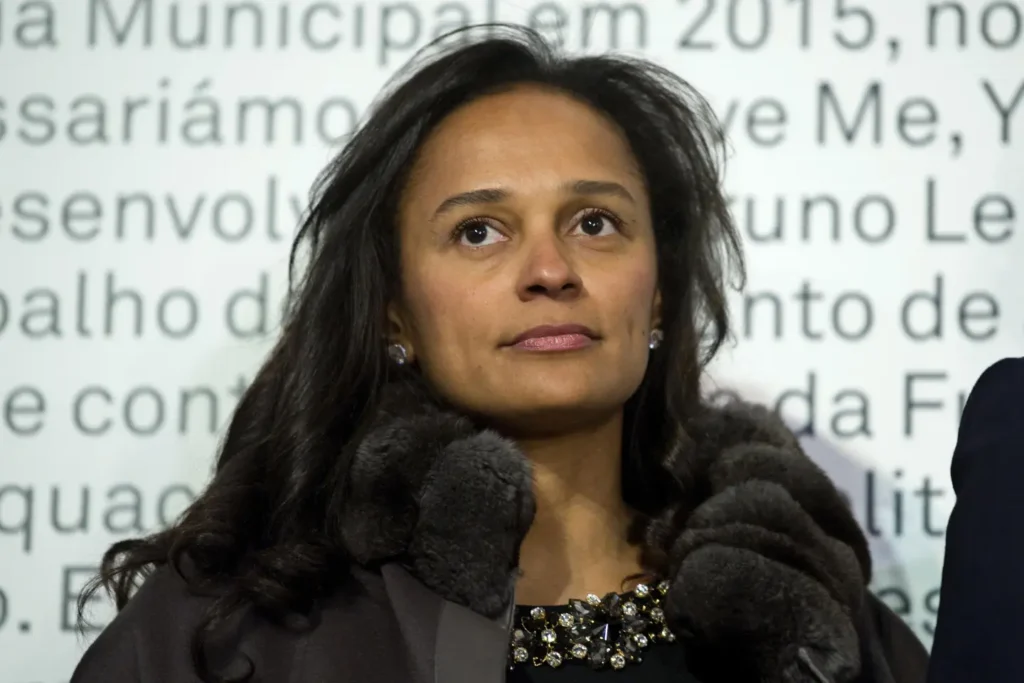In a significant development in the international legal arena, Isabel dos Santos, renowned as Africa’s first female billionaire, has faced a major setback in her legal battles. The High Court in London has granted a request to impose a worldwide freezing order on up to £580 million of her assets. This decision marks a crucial turning point in the ongoing litigation involving dos Santos, who is a key figure in African business circles.
Isabel dos Santos is the daughter of José Eduardo dos Santos, Angola’s former president who governed the nation for 38 years until 2017. Her prominence in business and politics has been a subject of considerable interest and controversy. The legal action against her was initiated by Unitel, a leading telecommunications operator in Angola, reflecting the complex and international nature of the case.
The dispute centers on allegations of financial mismanagement and improprieties linked to dos Santos, particularly during her father’s presidency. Last month, Unitel urged the London High Court to approve a worldwide freezing order on her assets, a move that dos Santos contested vigorously.
In her defense, dos Santos argued that such an order was unnecessary, pointing to the fact that her assets had already been frozen or seized in various countries, including Angola and Portugal. She maintained that these existing measures made the High Court’s additional order superfluous.
However, Judge Robert Bright, overseeing the case, delivered a ruling that dismissed dos Santos’s argument. In his written decision, Judge Bright stated that the presence of other freezing orders did not negate the need for the High Court to issue its own order.
The High Court’s ruling is a significant milestone in the series of legal challenges dos Santos faces across multiple jurisdictions. It highlights the international reach and implications of the allegations against her, involving complex legal proceedings in several countries.
This legal development is not just a personal setback for Isabel dos Santos but also has broader implications. It demonstrates the global legal system’s capacity and readiness to address cases of alleged financial misconduct involving high-profile individuals, irrespective of their political affiliations or social standing.
The case against dos Santos is reflective of a global shift towards increased accountability and legal action against individuals linked to regimes accused of corruption. This shift signifies a growing global intolerance toward corruption and financial malpractice, especially when it involves individuals of substantial influence.
Moreover, the ruling has profound implications for Angola as it continues to confront the legacy of the rule of José Eduardo dos Santos. The legal proceedings against Isabel dos Santos form part of Angola’s broader efforts to reclaim assets allegedly connected to corruption and the misappropriation of state resources.
As Isabel dos Santos confronts these legal challenges, the path ahead remains uncertain. The London High Court’s decision to freeze her assets worldwide is a critical juncture in her efforts to defend her reputation and retain control over her business empire. It serves as a powerful reminder of the severe consequences that can arise from allegations of financial irregularities, particularly for individuals in high-power positions.
The legal proceedings against Isabel dos Santos are ongoing, with many aspects yet to unfold. What remains evident is that this case has significant ramifications not only for dos Santos herself but also for the international fight against corruption and financial wrongdoing. The outcome of this legal saga could potentially establish new precedents for handling similar cases in the future, especially those involving influential figures with complex international financial activities.

Photo Credit: AP Photo/ Paulo Duarte





